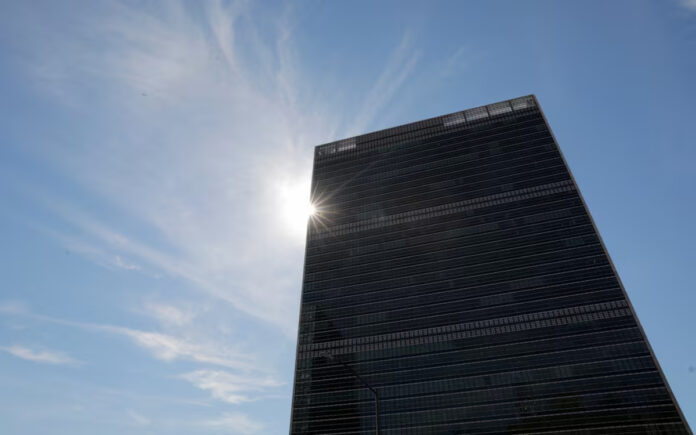New York: The United Nations General Assembly is gearing up to endorse a Palestinian bid for full U.N. membership on Friday, marking a significant move toward recognizing Palestine as a qualified member state. The application will be sent back to the U.N. Security Council, urging a reconsideration of the matter in a favorable light.
This resurgence of the Palestinian bid follows a recent setback in the 15-member U.N. Security Council, where the United States vetoed their previous attempt last month. Now, the 193-member General Assembly is poised to offer a global assessment of support for Palestinian statehood.
While the General Assembly lacks the authority to grant full U.N. membership, the draft resolution to be voted on Friday would afford Palestinians certain additional rights and privileges starting from September 2024. These include a seat among U.N. members in the assembly hall, though without voting privileges.
Diplomats anticipate widespread support for the draft resolution, paving the way for its adoption.
The Palestinian pursuit of full U.N. membership unfolds against the backdrop of a seven-month conflict between Israel and Palestinian militants in Gaza. Additionally, Israel’s expansion of settlements in the occupied West Bank, deemed illegal by the U.N., adds urgency to the Palestinian quest for statehood.
Also Read | Perception Gap in USA: Americans and Asian Americans Diverge on Anti-Asian Hate, Report Finds
Currently, Palestine holds the status of a non-member observer state, a de facto recognition of statehood granted by the U.N. General Assembly in 2012.
In a letter addressed to U.N. member states, the Palestinian U.N. mission in New York underscored the significance of adopting the draft resolution, framing it as an investment in preserving the long-awaited two-state solution. It emphasized the resolution’s role in reaffirming support for Palestinian self-determination and the right to an independent state.
The mission, led by the Palestinian Authority, which exercises limited self-rule in the West Bank, seeks to counter the influence of Hamas. The militant group, in control of Gaza since 2007, has repeatedly clashed with Israel, perpetuating tensions in the region.
The United Nations has consistently advocated for a two-state solution, envisioning Israel and Palestine coexisting within secure and recognized borders. Palestinians aspire to establish a state encompassing the West Bank, East Jerusalem, and the Gaza Strip—territories seized by Israel in the 1967 Arab-Israeli War.
Also Read | Congressman Chip Roy Warns of Potential Imposition of Sharia Law in America
The U.S. maintains that the path to Palestinian statehood lies through direct negotiations, reiterating its stance amidst the unfolding U.N. proceedings.
Israeli Ambassador to the U.N., Gilad Erdan, has denounced the draft resolution, asserting that it would confer de facto statehood and rights upon Palestinians without altering realities on the ground. Erdan warned of potential repercussions, including the cessation of U.S. funding to the U.N. and its affiliated institutions, citing American laws prohibiting support to entities lacking internationally recognized attributes of statehood.
U.S. legislation introduced by 25 Republican senators aims to further restrict funding to entities extending rights and privileges to Palestinians, reflecting ongoing political divides on the issue. However, the bill’s prospects in the Democrat-controlled Senate remain uncertain.



